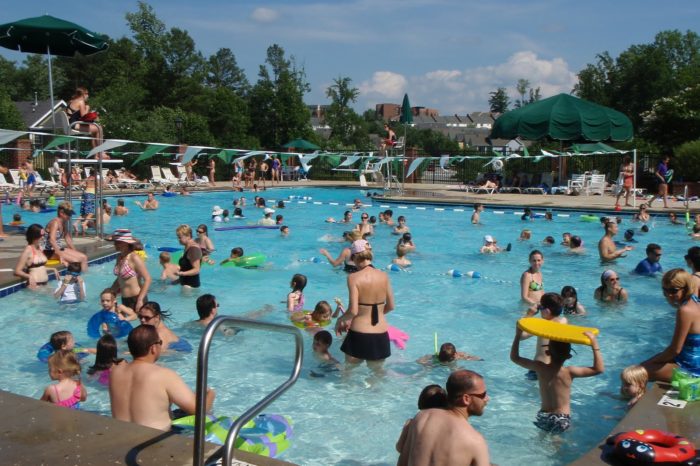Pool Time and Part-Time
It’s official; we’re in a heat wave.
Earlier this month, Governor Baker and the Department of Conservation and Recreation (DCR) announced that until August 19, public pools and athletic complexes will have extended operating hours. Going into effect across 20 locations for the second year in a row, this initiative is meant to provide Massachusetts’ children with access to recreational resources during school vacation.
As Governor Baker stated, “Extending the hours of operation for these urban facilities will provide a safe location for families to enjoy the season, while promoting a healthy and active lifestyle.” For July, the selected public pools will be open until 8:00 PM on Tuesdays. In August, the pools will be open until 7:30 PM on Tuesdays as well. Residents can find a full list of the selected facilities on the DCR webpage.
Along with the extended hours, DCR and a few of its community partners will soon roll out a full schedule of physical and cultural activities like basketball, hip hop, painting, and flag football. On top of that, DCR and the Boston Branch of the NAACP are planning a series of youth leadership forums to empower teens to tackle problems their communities are facing.
In the last few years, DCR executed and supported new programs by hiring over a thousand additional employees, many of whom are part-time workers. Due to budgetary constraints, the department has had to limit hours for their workers and move toward a large part-time workforce. In 2012, DCR had 1,109 employees making an average of $51,147. In 2015, the number of employees increased to 3,033, but the average salary decreased to $27,942, according to MassOpenBooks. These statistics indicate a large increase in part-time workers whose lower wages bring down the department’s average salary.
In fact, Mass Open Checkbook shows that DCR currently employs 1,183 part-time workers. Between 2012 and 2015, the total DCR budget for salaries increased by almost $30 million. In terms of DCR’s recreation budget, Governor Patrick proposed a $900,000 increase for FY2015 to fund state beaches, pools, and recreational employees, bringing the recreation budget to $13.6 million. On top of that, part of DCR’s total budget increases are from recreational fee increases for camping, skating, and hiking, and part from restructuring its previously inefficient Permit and Lease Unit programs.
In 2012, DCR requested that the Office of the State Auditor perform an audit of DCR’s Long-Term Permit and Lease Unit programs. The audit found that DCR’s billing procedures were ambiguous and did not effectively track fees owed to the Commonwealth. It also recommended more specific language on billing procedures, consolidation of the unit’s filing systems, and a comprehensive register that tracks agreements and expiration dates. During the audit itself, DCR was able to collect $198,111 in outstanding fees.
DCR’s expanded budget and army of part-time workers are major reasons why this agency is able to successfully provide services and programs for people. Although pool time and sports may not be a vital need of the Commonwealth, the Department of Conservation and Recreation is deploying its resources more efficiently to give Massachusetts’ residents a holistic recreational experience.
Thejasa Jayachandran
Roger Perry Transparency Intern



